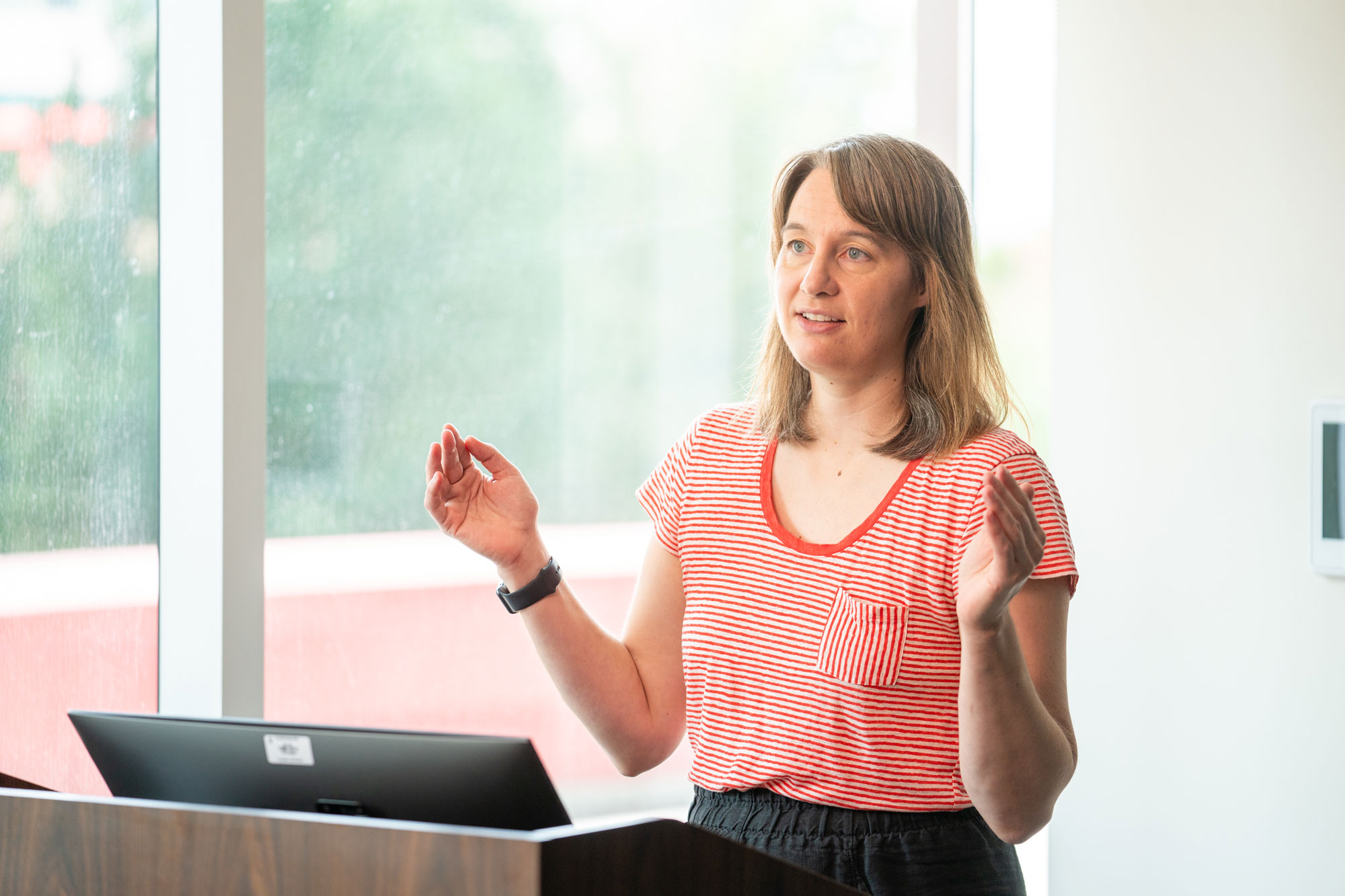Early riser Early riser Early riser
Lindsay Schwarz received the highest honor handed out by the U.S. government to scientists and engineers in independent research.

Lindsay Schwarz received the highest honor handed out by the U.S. government to scientists and engineers in independent research.
Two of Dr. Lindsay Schwarz’s cherished UW moments were not tied to early success.
Schwarz, ’03, a member of the Department of Developmental Neurobiology at St. Jude Children’s Research Hospital in Memphis, Tennessee, recently received the Presidential Early Career Award for Scientists and Engineers. It is the highest honor handed out by the U.S. government to scientists and engineers who are starting their independent research.
A Centralia native, Schwarz tried out for the UW crew as a freshman in 2000. She had never rowed before enrolling at UW. “Crew was transformative for me,” Schwarz says. “I tried out my freshman year and I got cut. I just wasn’t good enough. I worked really hard on my own and tried out again in my sophomore year and ended up being much more successful.”
Not being a natural at rowing and having that year of training gave Schwarz a foundation for a future research experience. After she graduated from UW with a bachelor’s degree in cell and molecular biology, Schwarz was fueled by her interest in science—even if she did not have a picture of how that would play out career-wise.
“The day-to-day grind of being a scientist in a lab—you have to love the daily process of it.”
Lindsay Schwarz
“There was a job ad in The Seattle Times for a full-time technician in Dr. Steve Carlson’s lab,” Schwarz says. “I got the job and it was a really unique experience. Even though Dr. Carlson [professor of neurobiology and biophysics] was a senior faculty member in the UW School of Medicine, he was still in the lab a lot.”
That meant Schwarz received no shortage of responsibility and independence in a small lab. The practical experience showed her what a career as a scientist would require.
Carlson shared some advice for her and the other students and recent grads who rotated through the lab: Many experiments would not work. The reward for doing them should not be expected success or excellence. The point is to improve and make progress for the next day. “Taking that mindset is really important,” Schwarz says. “The day-to-day grind of being a scientist in a lab—you have to love the daily process of it.”
This love led to the Presidential Early Career Award for Schwarz, who was nominated by the National Institute of Neurological Disorders and Stroke, part of the NIH.
“So many people I look up to had won this award. … it’s an honor,” she says. One of her main research projects over during the past five years has centered on developing a tool for improving the ease and accuracy of studying and manipulating specific subpopulations of cells. Her lab’s progress on this research was published in Nature Neuroscience in 2024.
Schwarz, who joined the St. Jude faculty in 2017, plans to keep pushing the envelope as a researcher. “St. Jude really focuses on innovation, risk-taking and tackling big questions in science,” Schwarz says. “I am able to collaborate with amazing colleagues.”